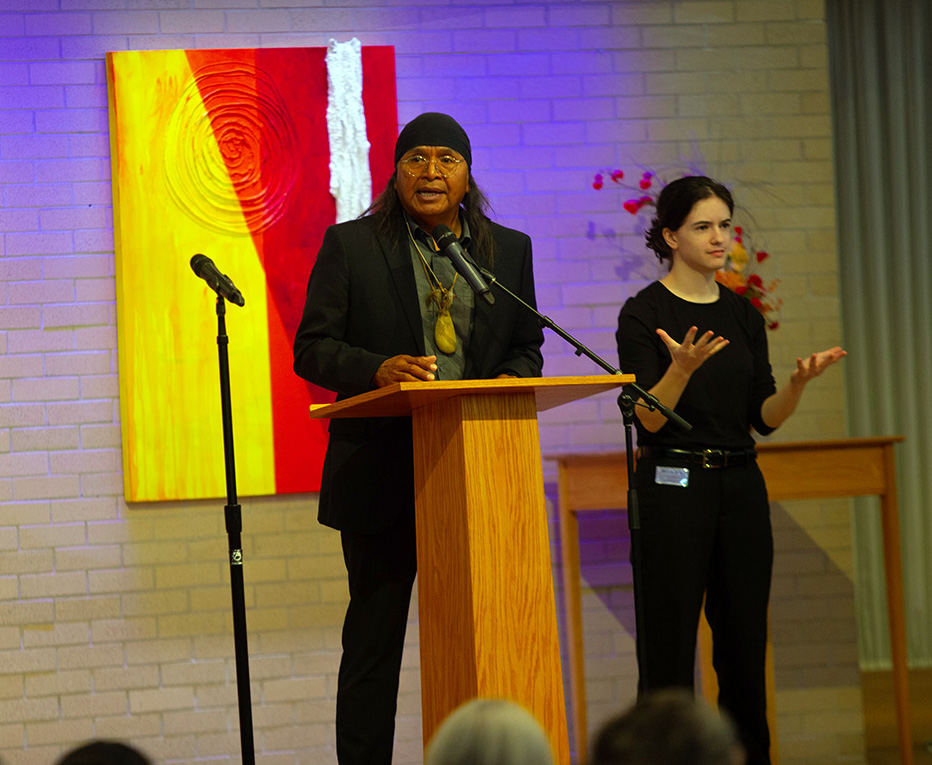Sacred solidarity

Last week, Apache leader Dr. Wendsler Nosie spent two days at Goshen College through our Atlee and Winifred Beechy Peace, Justice and Reconciliation Lectureship. Dr. Nosie gave two lectures, spoke in four classes, and shared two dinner conversations with students, faculty and community members. The visit was hosted by our students who have created the One Circle student affinity group to support Indigenous students and to advocate for the rights and well-being of Indigenous communities.
Dr. Nosie brought us a gift and an invitation.
The gift was his call to awaken to the sacred nature of the land. All humans have a shared need to experience the land and its plants, animals and minerals as connected to our spirituality. The Apache understand and experience the sacredness of the land in specific ways. Christians share an understanding of this sacredness.
The Confession of Faith in a Mennonite Perspective states:
We believe that the universe has been called into being as an expression of God’s love and sovereign freedom alone. Creation witnesses to the eternal power and divine nature of God, who gives meaning and purpose to life and who alone is worthy of worship and praise.
Or, in the words of the papal encyclical, Laudate Si:
The entire material universe speaks of God’s love, his boundless affection for us. Soil, water, mountains: everything is, as it were, a caress of God.
Dr. Nosie’s invitation was to stand in solidarity with the Apache in their struggle to preserve their sacred land, because all religious freedoms are interdependent. Apache religious beliefs and practices are tied to a particular land in Arizona, known as Chi’chil Biłdagoteel in Apache and as Oak Flat in English, which the U.S. government has granted permission to international corporations to mine for copper. We cannot claim and celebrate our religious freedoms in this nation and deny those of the Apache.
The Apache Stronghold has appealed its case to the U.S. Supreme Court, arguing that to allow mining on an unceded Apache sacred site, now federal land, is a violation of the religious freedom of Apaches and other Indigenous people. Eighty-six religious organizations joined to file an Amicus Brief, including Goshen College and 32 other Anabaptist organizations. These “Friends of the Court” are saying to the Supreme Court that the decision by a lower court to allow a mining corporation to drill on Oak Flat goes against our own religious freedom laws and “works harm on all religious adherents.”
It is a remarkable turning that in this 500th anniversary year of Anabaptism, Mennonites like me, whose ancestors immigrated from Europe to North America as settlers seeking land and religious freedom, are now standing in solidarity with the religious freedoms of the people who were already on this land.
If you too want to stand in solidarity with the Apache in their case before the U.S. Supreme Court, you can join a petition here.
Rebecca Stoltzfus




